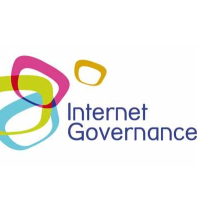NSA Revelations Prompt EU Call for Shift Away from U.S. Internet Governance
 (graphic: Internet Rights and Principles Coalition)
(graphic: Internet Rights and Principles Coalition)
European leaders want to loosen the United States’ grip over governance of the Internet, which originally began as a creation of the Pentagon. The move comes in the wake of how extensively the National Security Agency (NSA) has used the Internet and other means to spy on people across the globe. But it remains to be seen whether the U.S. will be willing to accede to Europe’s wish for Internet governance to become more global.
This week, the European Union’s senior body, the European Commission (EC), offered a plan for how the Internet should be managed. The changes involve ICANN, or the Internet Corporation for Assigned Names and Numbers, based in California.
Under contract with the U.S. government, ICANN assigns domain names used to access websites.
The EC said it was time to “transition to a more global model” for overseeing the Internet, which either means shifting ICANN out from under U.S. control or replacing it altogether with some other body.
The change was prompted by “recent revelations of large-scale surveillance” that “called into question the stewardship of the U.S. when it comes to Internet governance,” the commission stated.
“Large-scale surveillance and intelligence activities have led to a loss of confidence in the Internet and its present governance arrangements,” it added.
The EC also said it was concerned with other governments’ role in controlling the free flow of information across the Internet. It named those countries that have tried to censor Web access, including China, Russia, Iran, and Turkey.
European officials did not specify how exactly Internet governance should become more international. They did, however, state that the United Nations should not take over the duties currently held by the U.S.
American officials responded politely to the EC’s proposal, and promised to work toward making Internet governance more “inclusive.”
“The U.S. government welcomes the strong and continued commitment of the European Commission to the multistakeholder model of Internet governance,” Lawrence E. Strickling, U.S. assistant secretary of commerce for communications and information, said in a statement. “We will work with the Commission and other Internet stakeholders to make multistakeholder governance more inclusive, especially to support the engagement of countries in the developing world.”
-Noel Brinkerhoff
To Learn More:
Internet Governance Too US-Centric, Says European Commission (by Ian Traynor, The Guardian)
Europe Wants Less U.S. Power over Internet (by Anthony Faiola, Washington Post)
NSA Unit Intercepts Computer Shipments for Secret Access Modifications (by Noel Brinkerhoff, AllGov)
Concerned U.S. Allies Want Privacy Guarantees in Wake of NSA Revelations (by Noel Brinkerhoff, AllGov)
- Top Stories
- Unusual News
- Where is the Money Going?
- Controversies
- U.S. and the World
- Appointments and Resignations
- Latest News
- Trump Renames National Football League National Trump League
- Trump to Stop Deportations If…
- Trump Denounces World Series
- What If China Invaded the United States?
- Donald Trump Has a Mental Health Problem and It Has a Name






Comments